
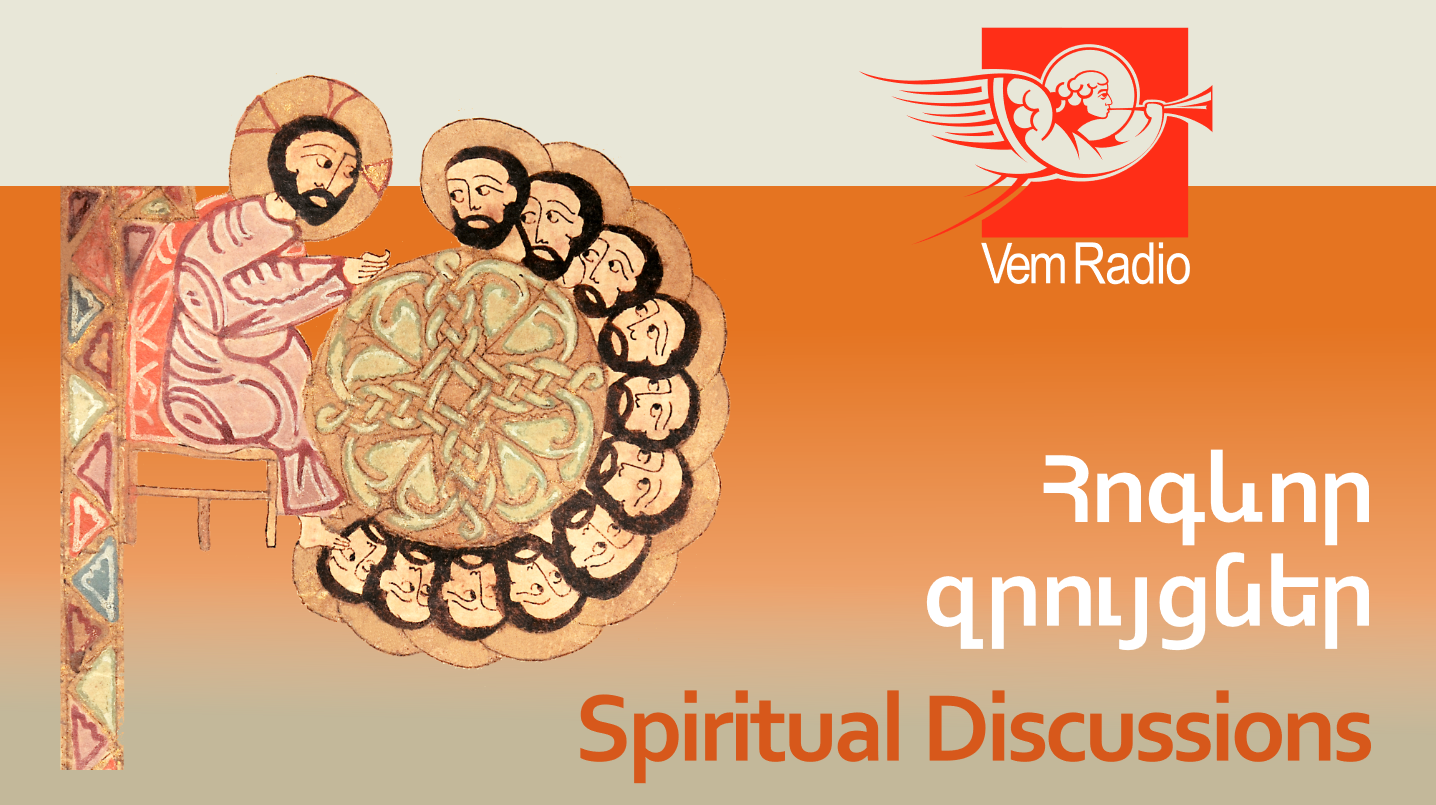
Spiritual Discussions
Christian faith according to the Bible and teaching of the Church Fathers. How to fulfil the divine commandments and fight against sin? The Holy Bible and the Sacred Tradition of the Church. How the Church responds to the fundamental questions of human live and how to live according to the faith in the modern world? Faith as a worldview, way of knowing and culture. How to raise children? Spiritual principles of learning and self-knowledge.

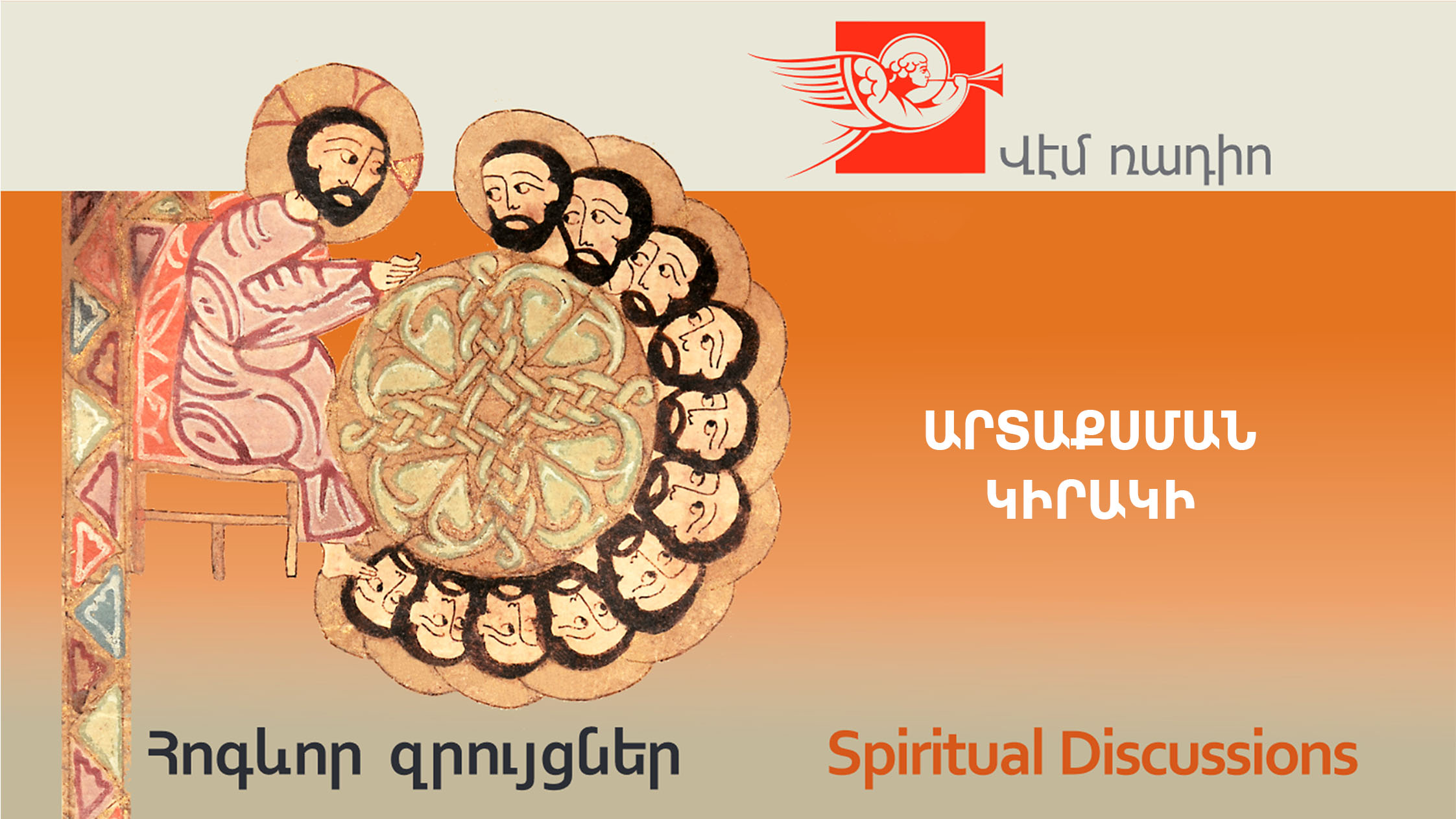
Sunday of Expulsion
The first “fast” broken by human in the Garden of Eden. The allegory of the forbidden fruit in the Book of Genesis and in modern life. Expulsion not from the Paradise but from the presence of God. The bitterness of the forbidden fruit and the sweetness of the Lord’s soothing commandments. Freedom of will and responsibility. Woman’s subjection to her husband and man’s obedience to the Lord after the expulsion from Paradise.
- Speaker: Fr. Zakaria Ananyan
- Host: Deacon Vardan Aslanyan

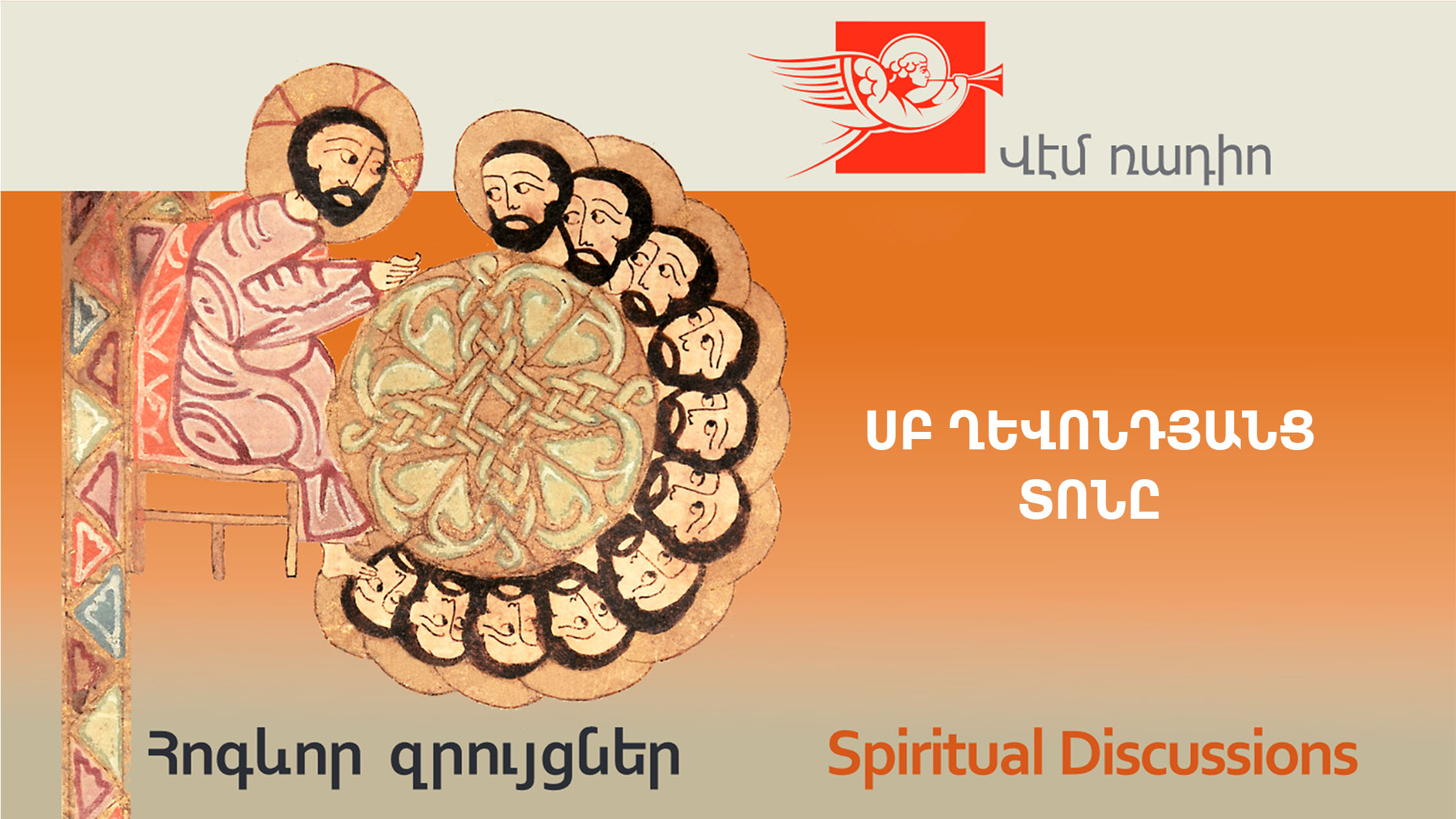
Feast of Holy Leontians
The Leontian movement and the martyrdom of Armenian clergy in Persia. The daily guidance of the community of the faithful and people by the clergy. The biblical understanding of the word “priest” and the mystery of priesthood. The priestly vocation, selection, and the authority given by ordination. Christ as the “eternal high priest” (Heb. 5:10).
- Speaker: Fr. Zakaria Ananyan
- Host: Deacon Vardan Aslanyan

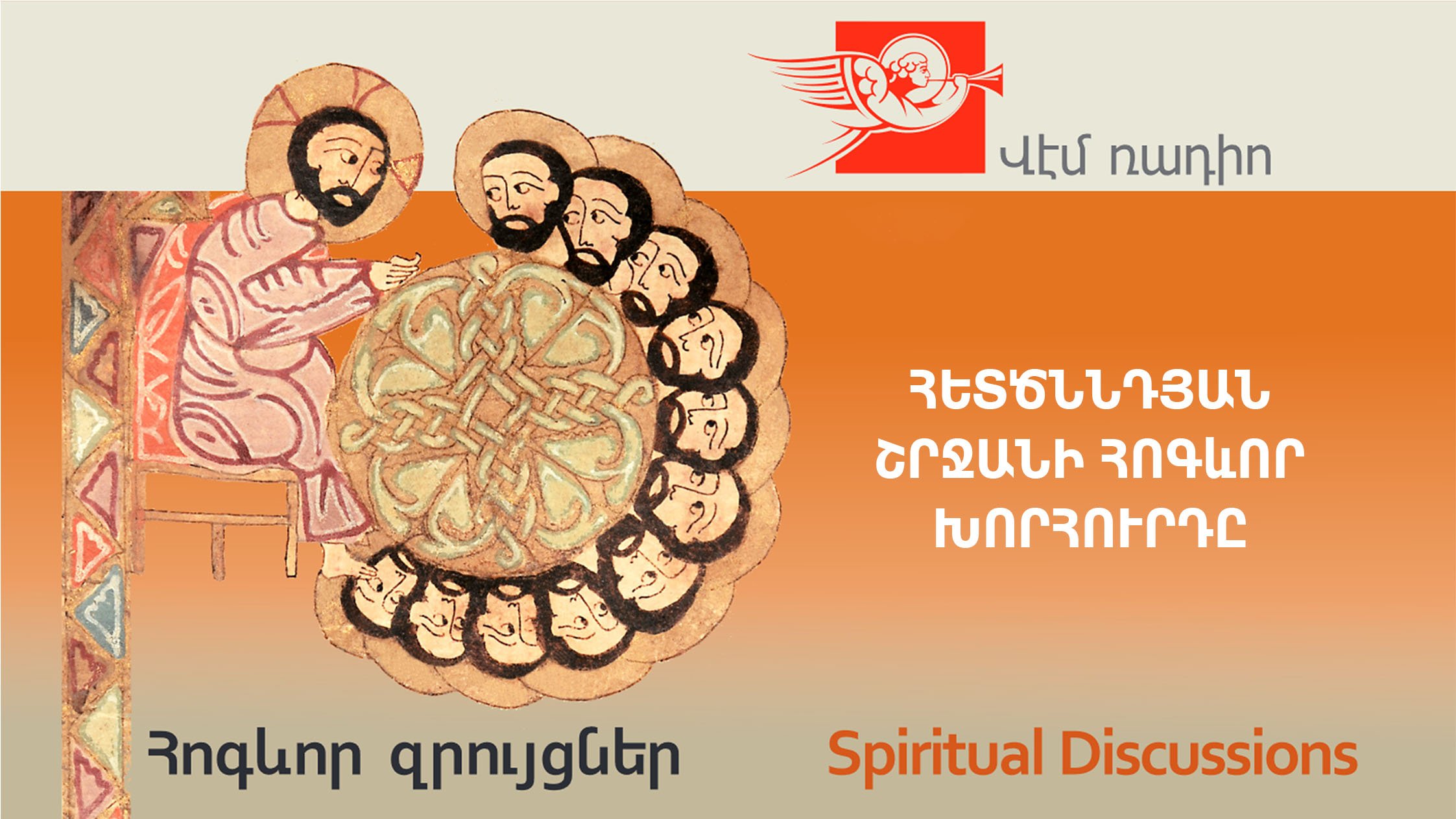
The Spiritual Significance of the Post-Nativity Period
The linear and, at the same time, cyclical logic of the Church calendar. The period between Holy Nativity and the Presentation of Christ to the Temple. Spiritual watchfulness versus festal carelessness. A call for repentance: the Fast of Catechumens established by St. Gregory the Illuminator, and the commemoration of Jonah the Prophet. The period of catechumenate.
- Speaker: Fr. David Gishyan
- Host: Deacon Vardan Aslanyan

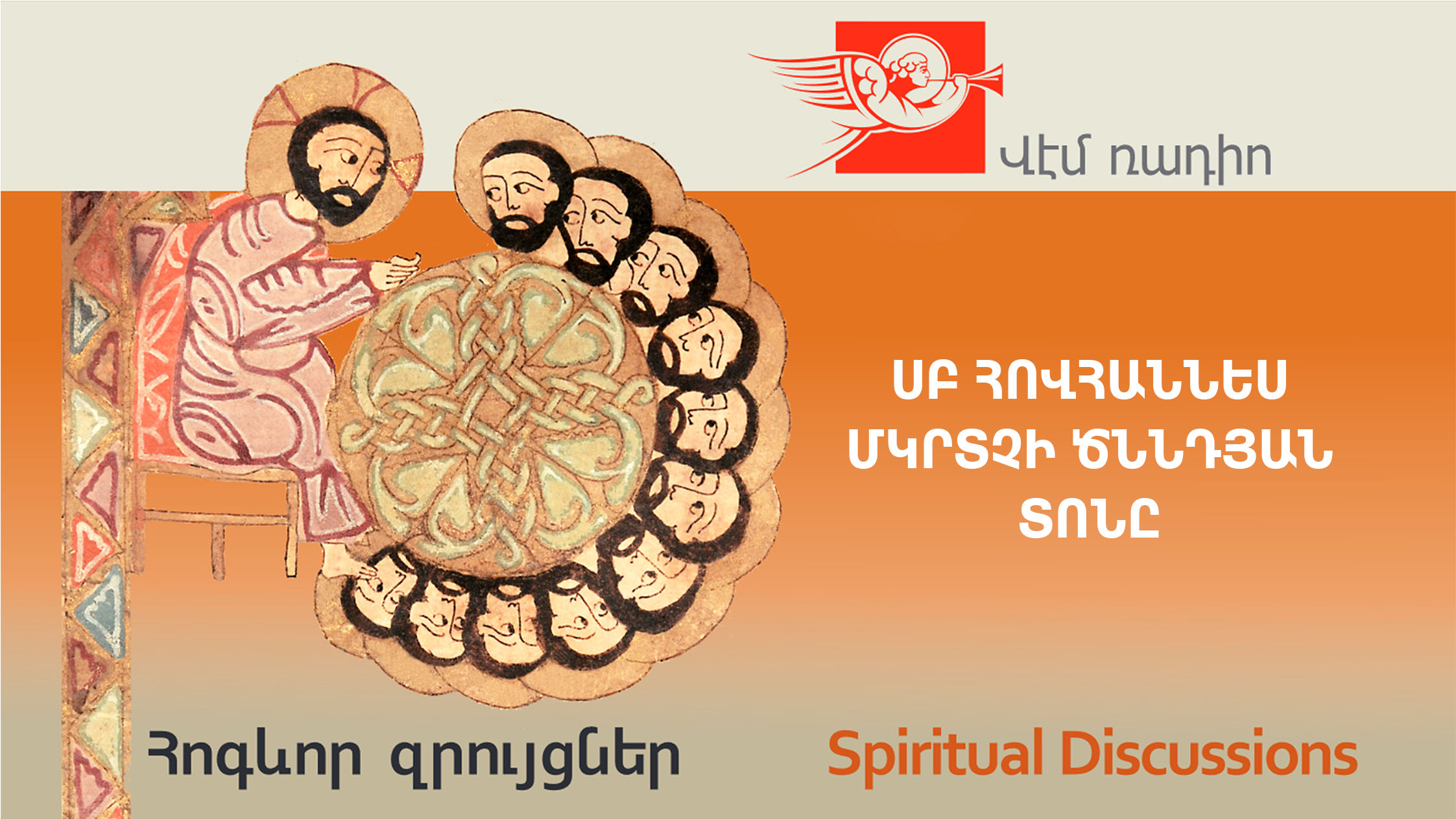
Feast of the Birthday of St. John the Baptist
The Gospel chronology of the births of Christ and John the Baptist; the Church calendar. Comparison of the episodes describing the angelic annunciations to St. Mary and to Zechariah. The blessing of water on Holy Nativity day; Christ’s baptism and John the Baptist. “Truly I tell you, among those born of women there has not risen anyone greater than John the Baptist; yet whoever is least in the kingdom of heaven is greater than him.... he is the Elijah who was to come.” (Mt. 11:11-14). The voice of one calling in the wilderness.
- Speaker: Fr. David Gishyan
- Host: Deacon Vardan Aslanyan

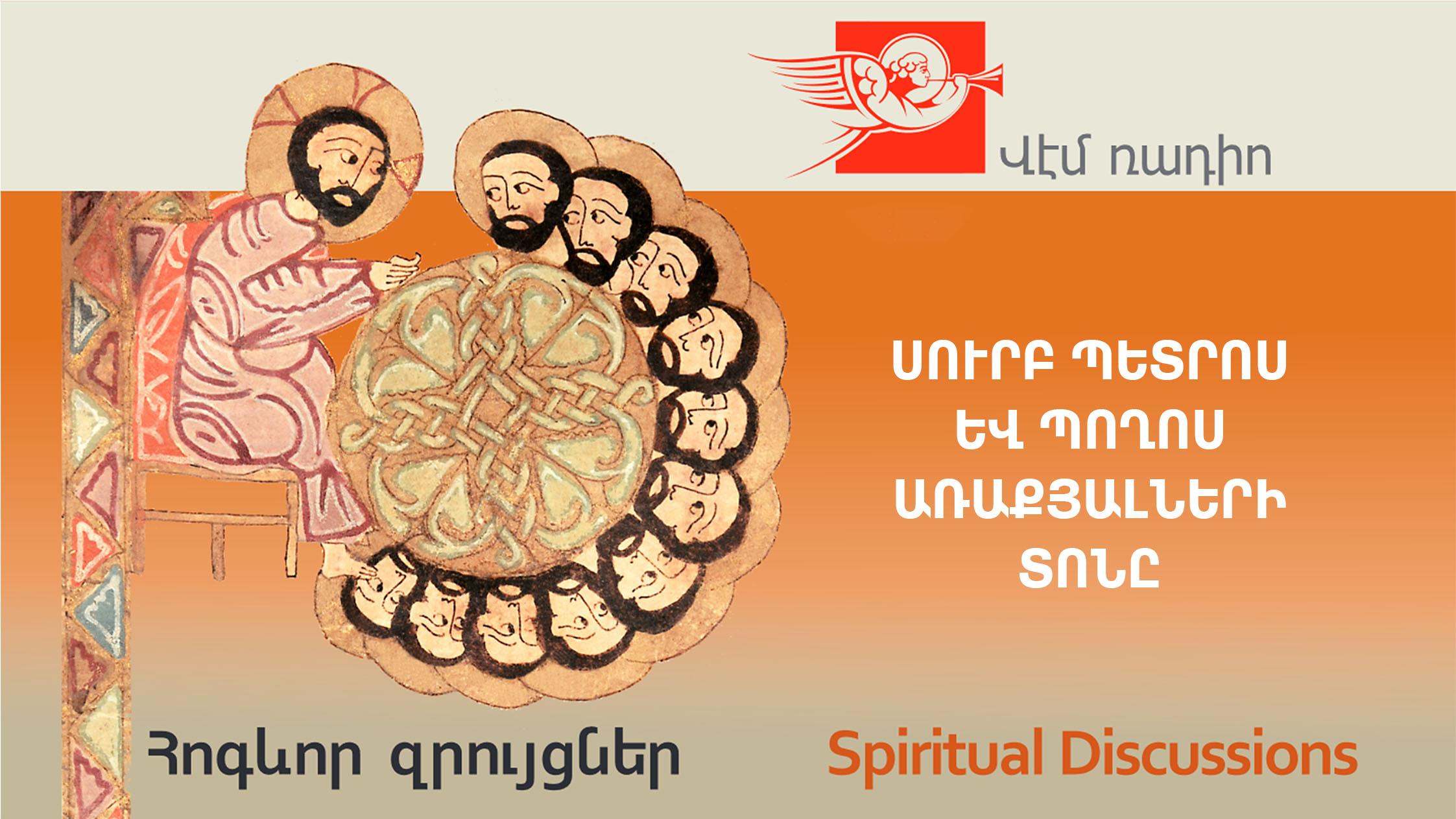
The Feast of the Apostles Peter and Paul
The “principal” apostles of the Lord’s Church. The different ways Peter and Paul were called by Christ to apostolic ministry. Peter, the Rock of the Church, and the instructive example of his way of faith. The Apostle Paul as a bearer of three cultures and as a preacher among the pagans; the temptations in his apostolic ministry. The differences of Apostles Peter and Paul’s preaching; their spiritual brotherhood. The apocryphal text “The Acts of Peter and Paul.”
- Speaker: Fr. Husik Dokholyan
- Host: Deacon Vardan Aslanyan

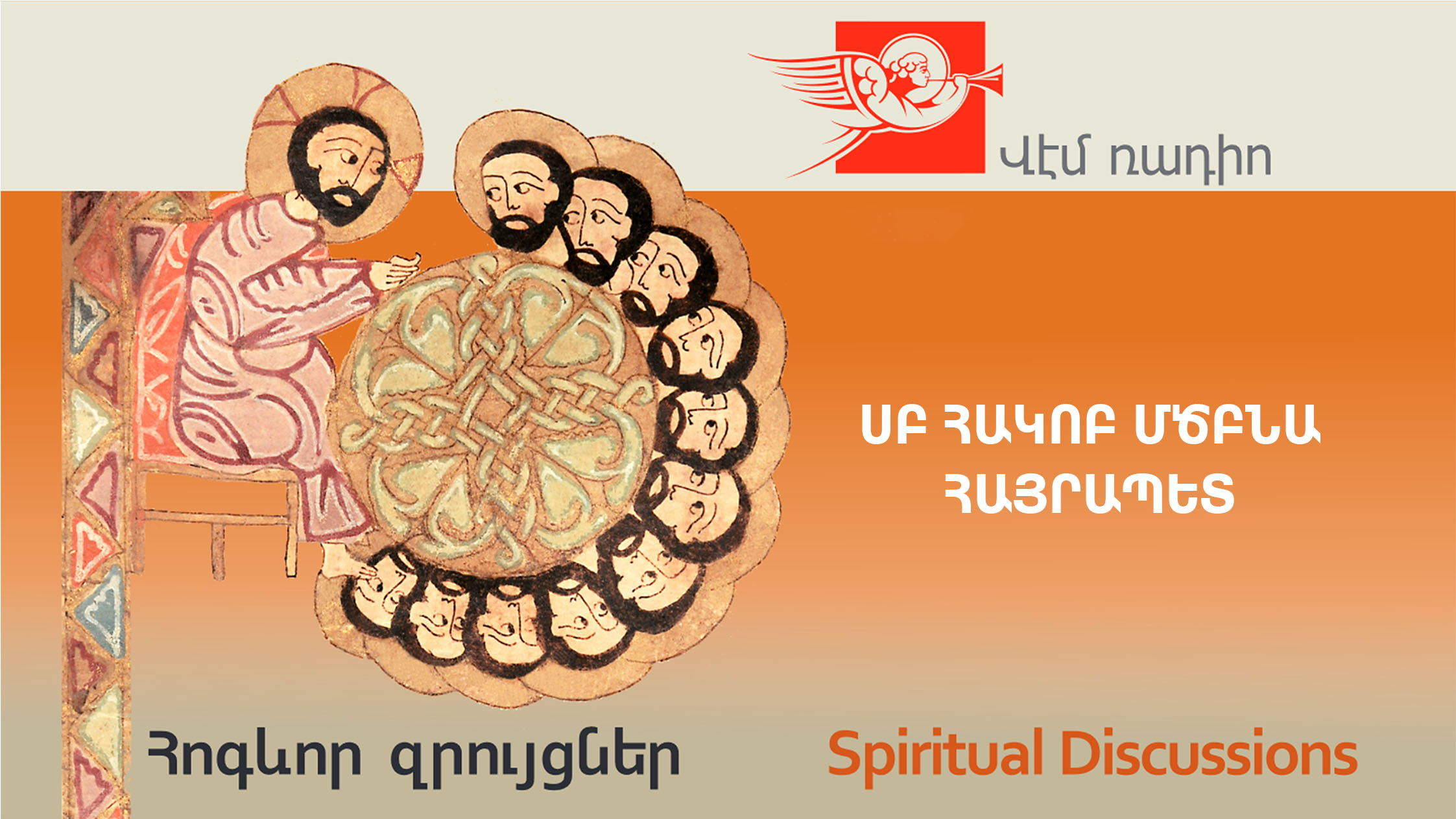
St. Jacob of Nisibis
The holy teacher of the Universal Church. The impact of monasticism on the early Church. Jacob of Nisibis’s participation in the First Ecumenical Council of Nicea. His honorific epithet “triumphant patriarch” and his relics in the Armenian Church. The location of Noah’s Ark and the ideological significance of the Ark’s relic for Armenians and the Armenian Church.
- Speaker: Fr. Husik Dokholyan
- Host: Deacon Vardan Aslanyan

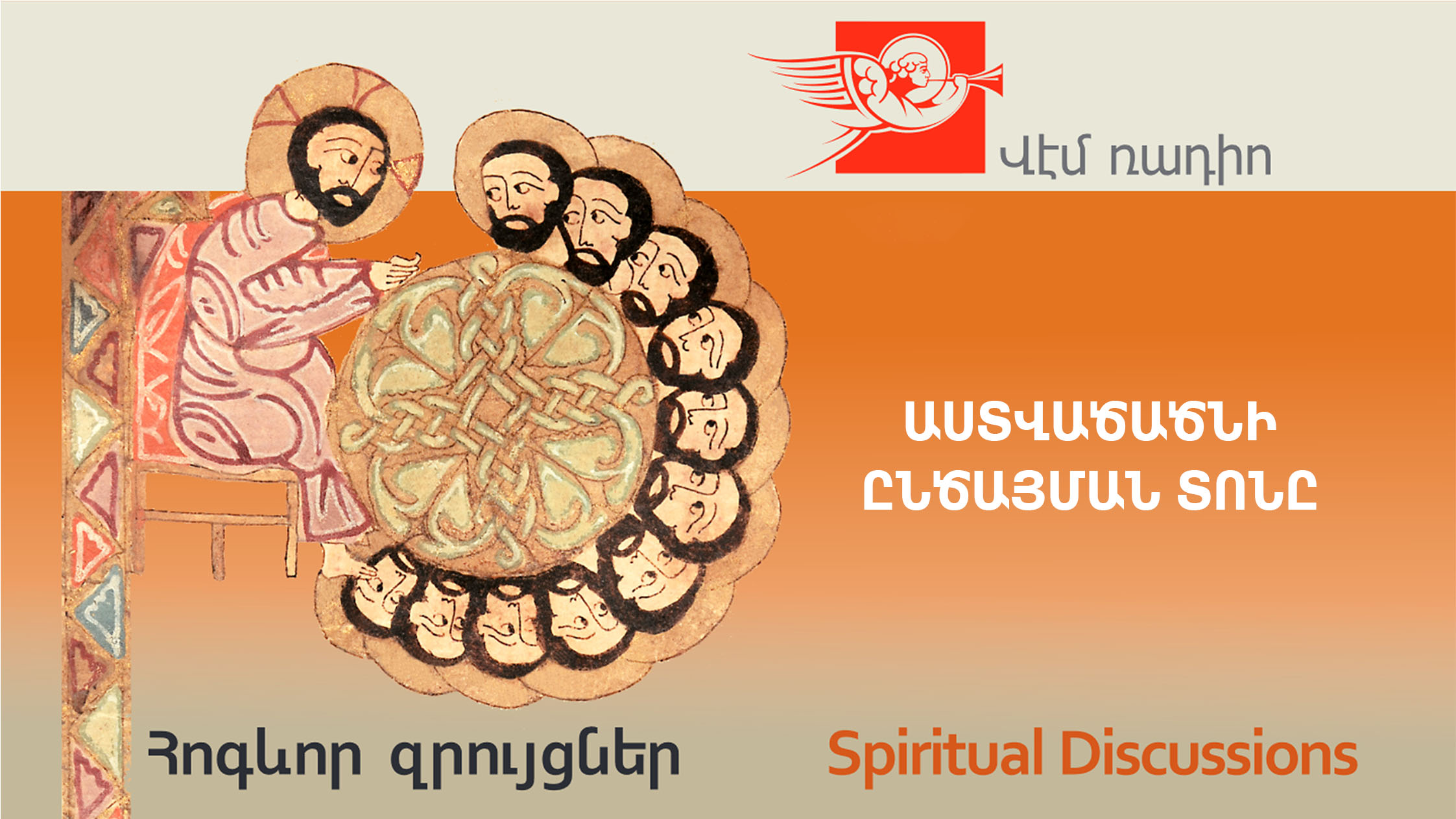
Feast of the Presentation of the Mother of God to the Temple
The Church’s tradition about the three-year-old Mary’s presentation to the Temple, and the establishment of the feast dedicated to this event. The extrabiblical sources for the story of St. Mary’s childhood and her parents. The pagan and Jewish traditions of presenting children to temples. Children’s education and spiritual edification in temples in the Jewish and Christian worlds. Re-evaluating the practice of presenting children to the Church in today’s reality.
- Speaker: Fr. Zakaria Ananyan
- Host: Deacon Vardan Aslanyan

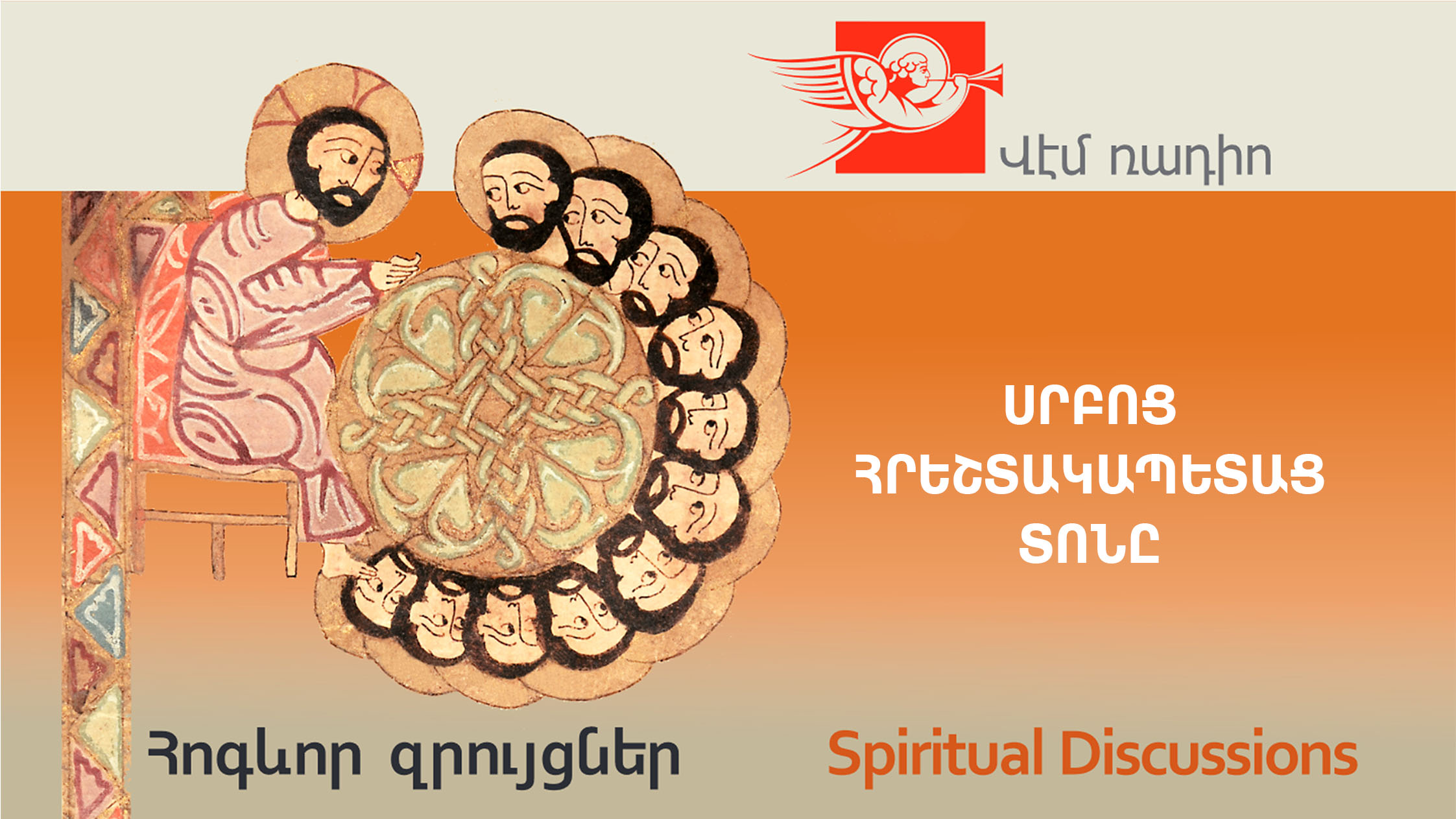
Feast of the Holy Archangels
The description of angels in the Bible, and their mission as messengers. The edifying example of angels in spiritual life. The angelic orders described in the works of Dionysius the Areopagite, and the ecclesiastical hierarchy modeled on the angelic orders. The angelic orders of seraphim, cherubim, and thrones, who enjoy the immediate presence of God. The Gospel testimonies of the existence of guardian angels. The spiritual brotherhood of humans and angels.
- Speaker: Fr. Zakaria Ananyan
- Host: Deacon Vardan Aslanyan

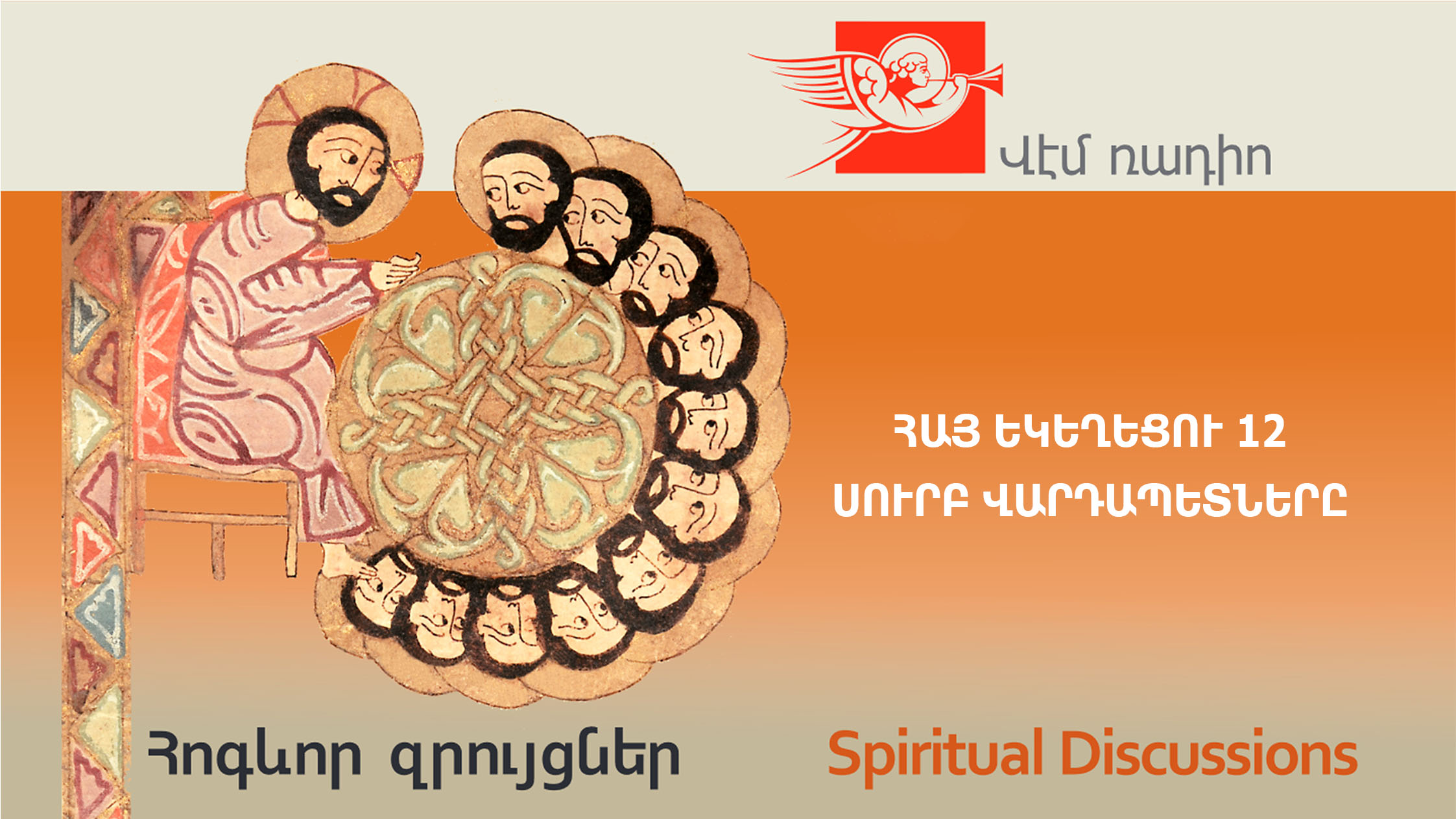
The 12 Universal Teachers of the Armenian Church
The list of the Universal Teachers of the Armenian Apostolic Church, the peculiarities of its formation, and the possibility of its amendment. Apostolic Fathers: Hierotheus and Dionysius the Areopagite. The pillars of the Armenian Church orthodoxy: Athanasius the Great, Cyril of Alexandria, and Cyril of Jerusalem. The philosophical theology of the Cappadocian Fathers. The literary legacy of John Chrysostom. The writings of the Universal Teachers as recommended spiritual literature.
- Speaker: Fr. David Gishyan
- Host: Deacon Vardan Aslanyan

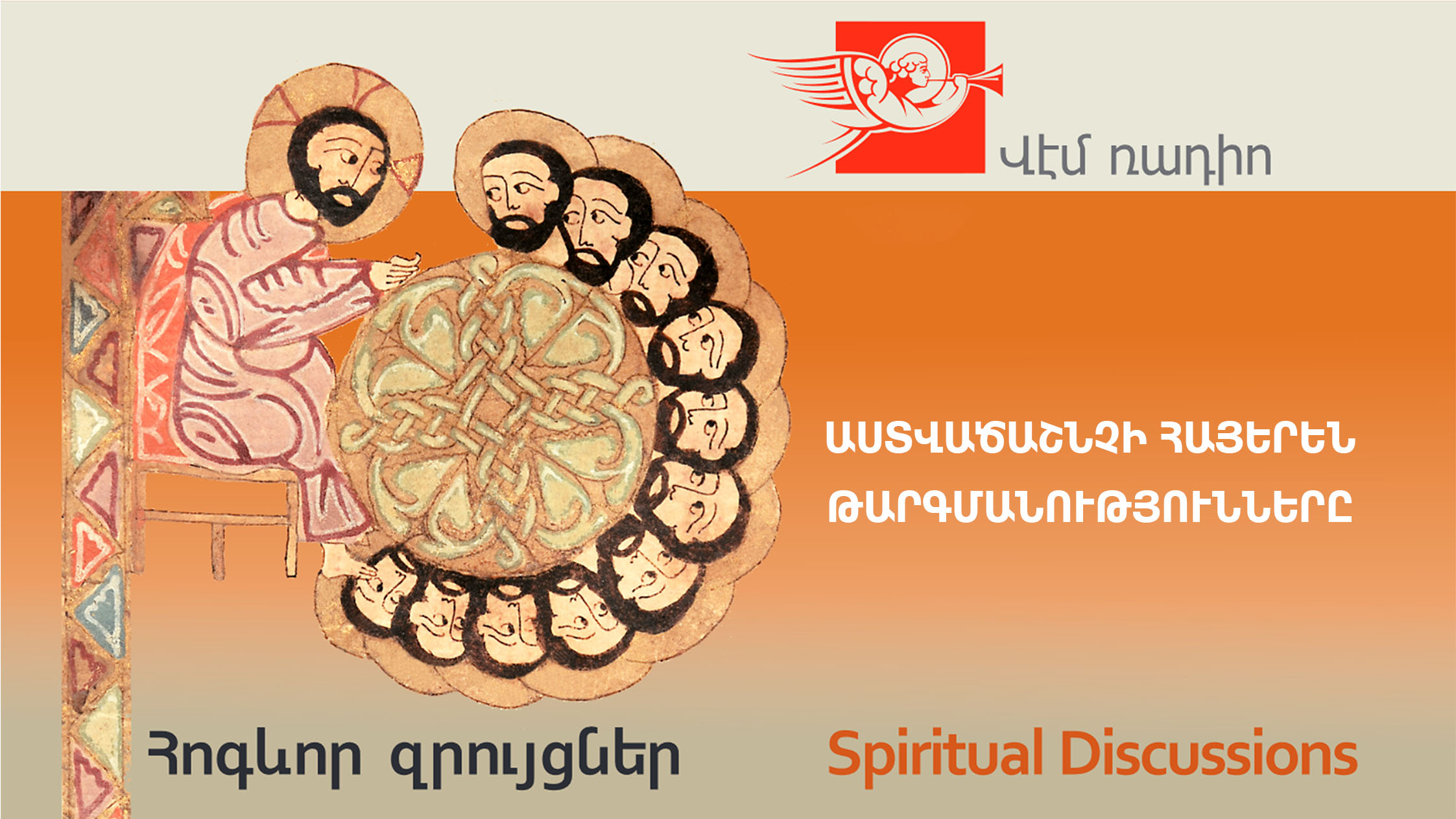
The Armenian Translations of the Bible
Commemoration of the translation of the Bible on the Feast of the Holy Translators. The “hasty” Classical Armenian translation of the Bible, its text and publications. The widely circulated Eastern and Western Armenian editions of the Bible; the problem of inaccurate translations. Examples of linguistic comparison and translation subtleties of the biblical text.
- Speaker: Fr. David Gishyan
- Host: Deacon Vardan Aslanyan

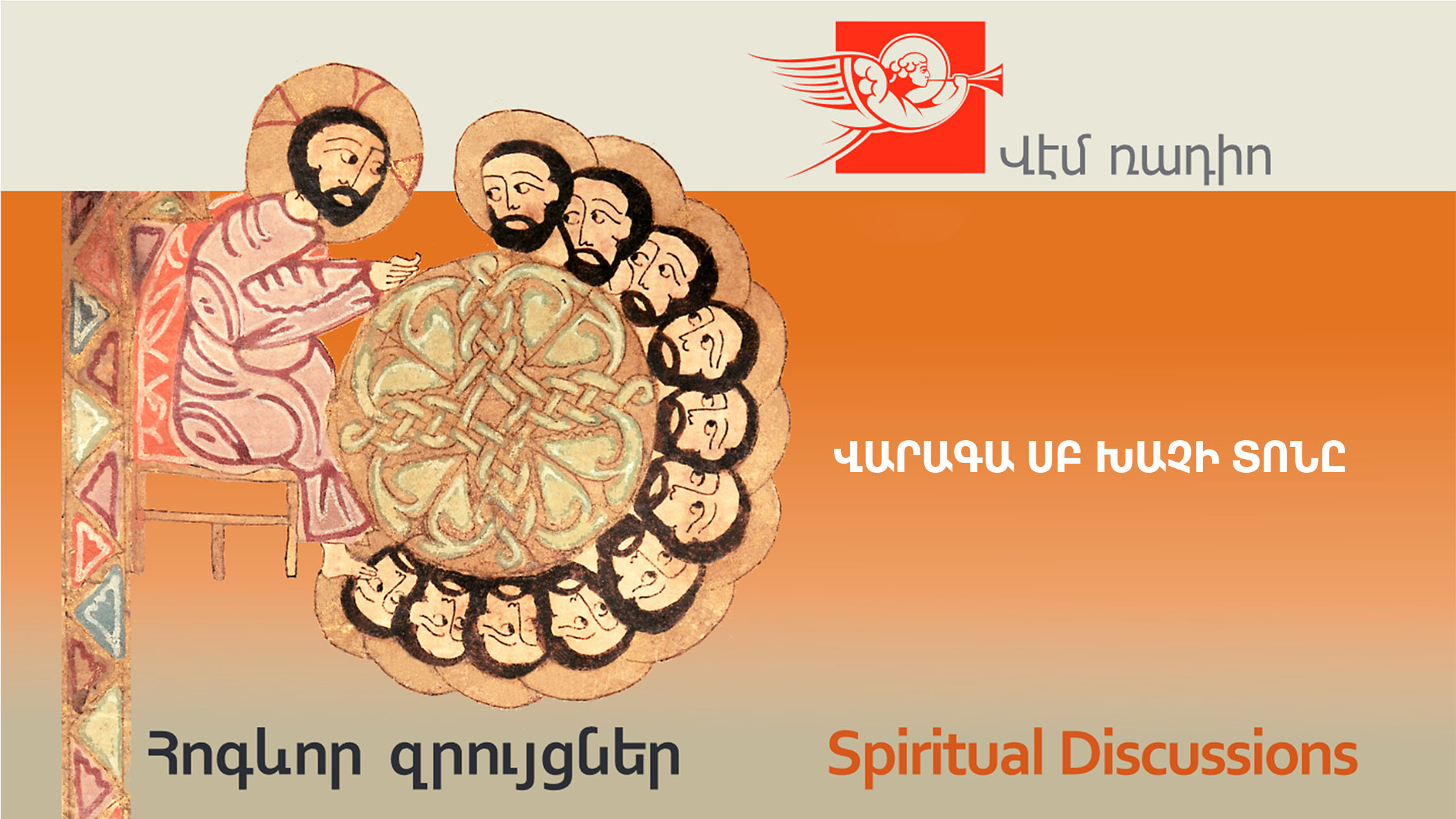
The Feast of the Holy Cross of Varag
The only national ecclesiastical feast dedicated to the Holy Cross. “Then the sign of the Son of Man will appear in heaven” (Mt. 24:30). The miracle of the Holy Cross of Varag in the period of the establishment of the Arab rule in Armenia; the Lord’s visit to His people. “May I never boast except in the cross of our Lord Jesus Christ” (Gal. 6:14). The hope given to the people that are faithful to the Lord’s cross and carry their cross.
- Speaker: Fr. Husik Dokholyan
- Host: Deacon Vardan Aslanyan

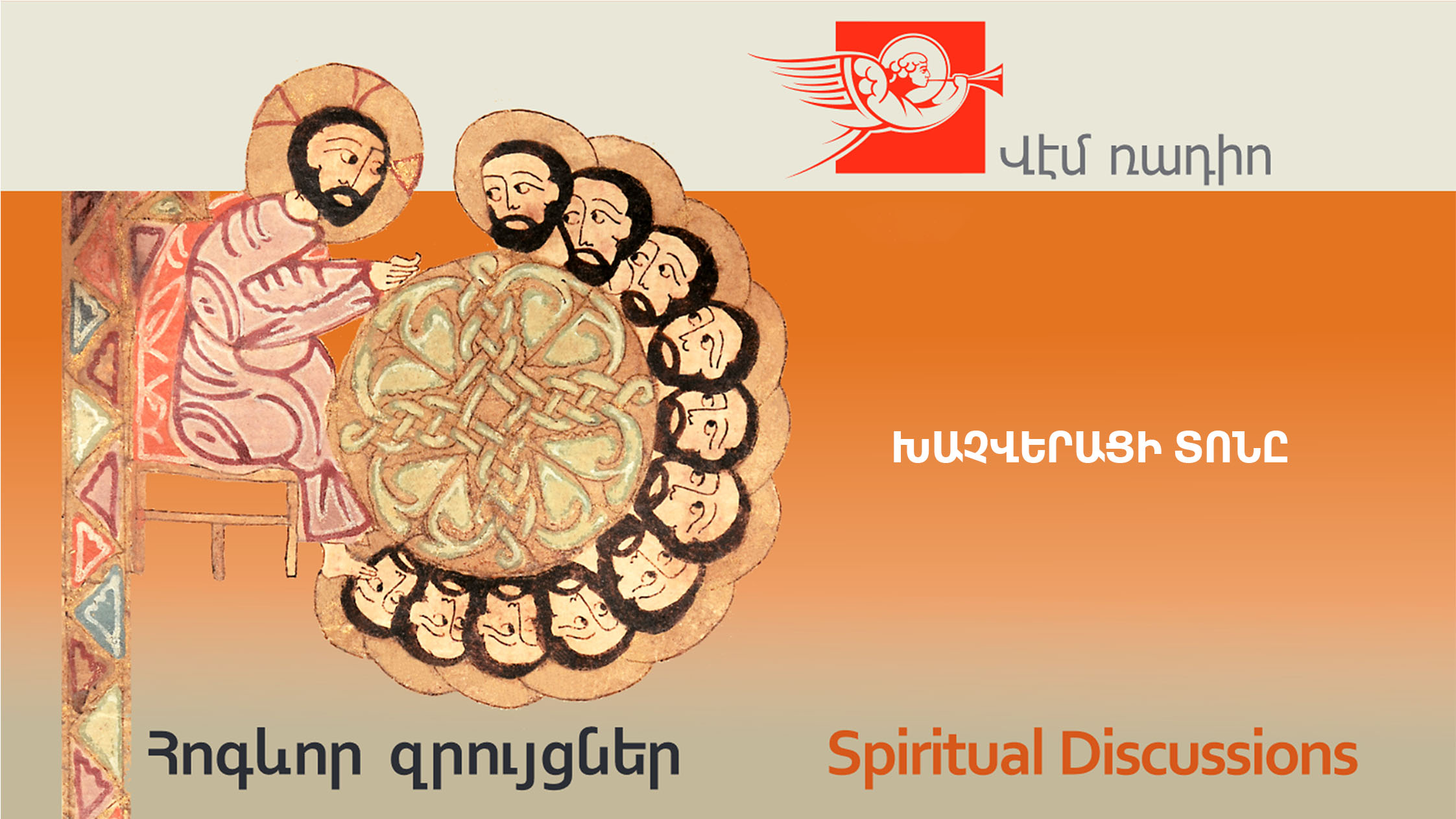
The Feast of the Exaltation of the Holy Cross
The return of the Lord’s wooden cross from captivity to Jerusalem. The victory of Christians through the Cross. Glorification of the Lord’s Cross during ritual processions and andastans. The feasts of the Holy Cross as feasts of finding the Cross. The personal relationship of Christians with the Crucified and His saving Cross. The true cross-carrying; necessity of carrying the Cross in one’s soul.
- Speaker: Fr. Husik Dokholyan
- Host: Deacon Vardan Aslanyan

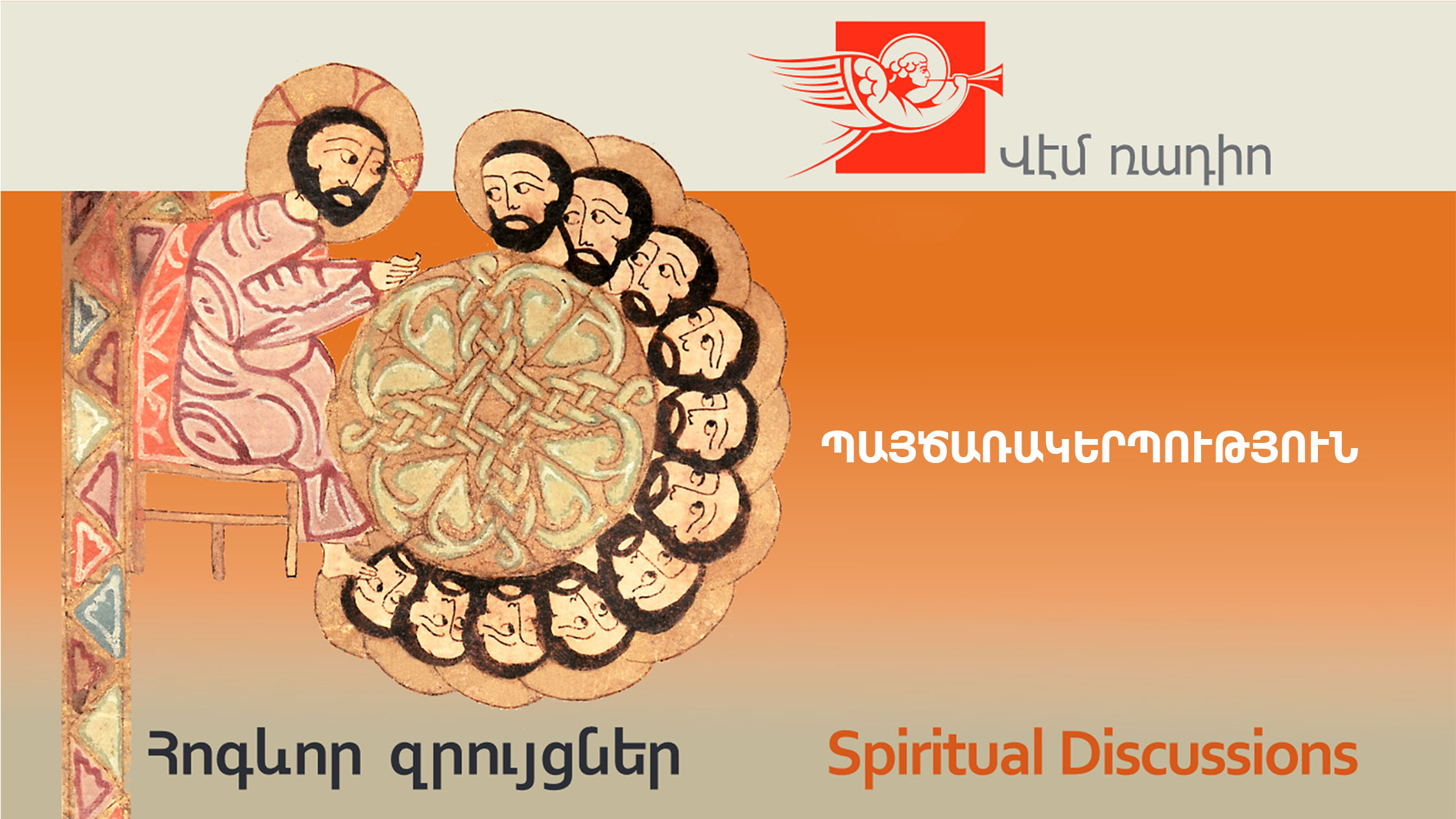
Transfiguration
Transformation of the pagan Vardavar into the Feast of the Transfiguration of the Lord. The Gospel description of the Transfiguration. The presence of Moses and Elijah at the episode of the Transfiguration. Transfiguration of Christians and their renewal through the Lord. “And all of us, with unveiled faces, seeing the glory of the Lord as though in a mirror, are being transformed into the same image from glory to glory, as by the Spirit of the Lord.” (2 Cor. 3:18).
- Speaker: Fr. Husik Dokholyan
- Host: Deacon Vardan Aslanyan

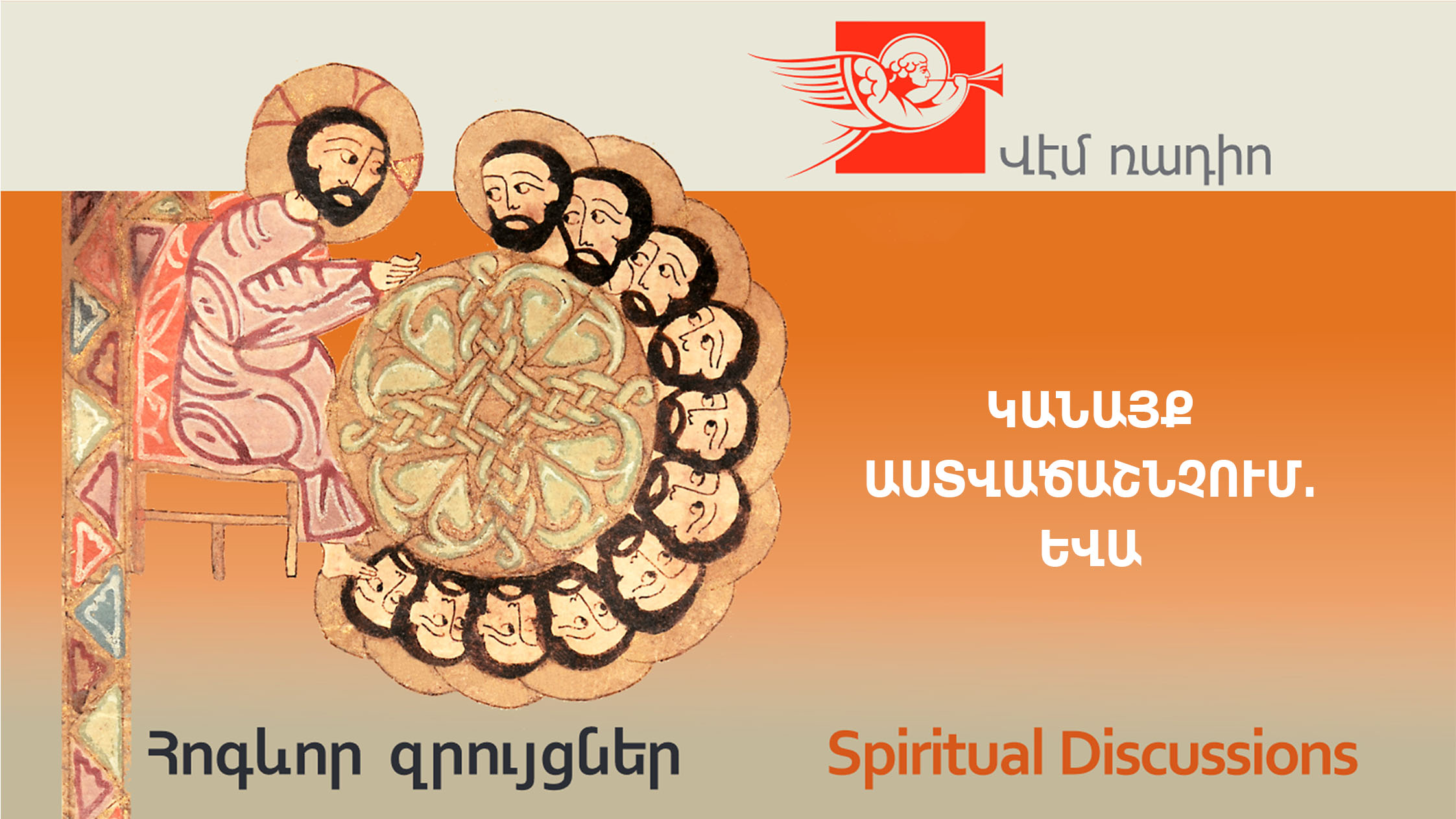
Women in the Bible: Eve
The distinctive relations of men and women with the Lord. The psychological aspect of temptation and sinning. Eve’s bold and inquisitive character in Mark Twain’s “The Diary of Adam and Eve.” The temptations of Eve, and the Lord’s promise of salvation. Eve and New Eve, Mary. Women’s collective peculiar traits that come from Eve.
- Speaker: Almast Muradyan
- Host: Deacon Vardan Aslanyan

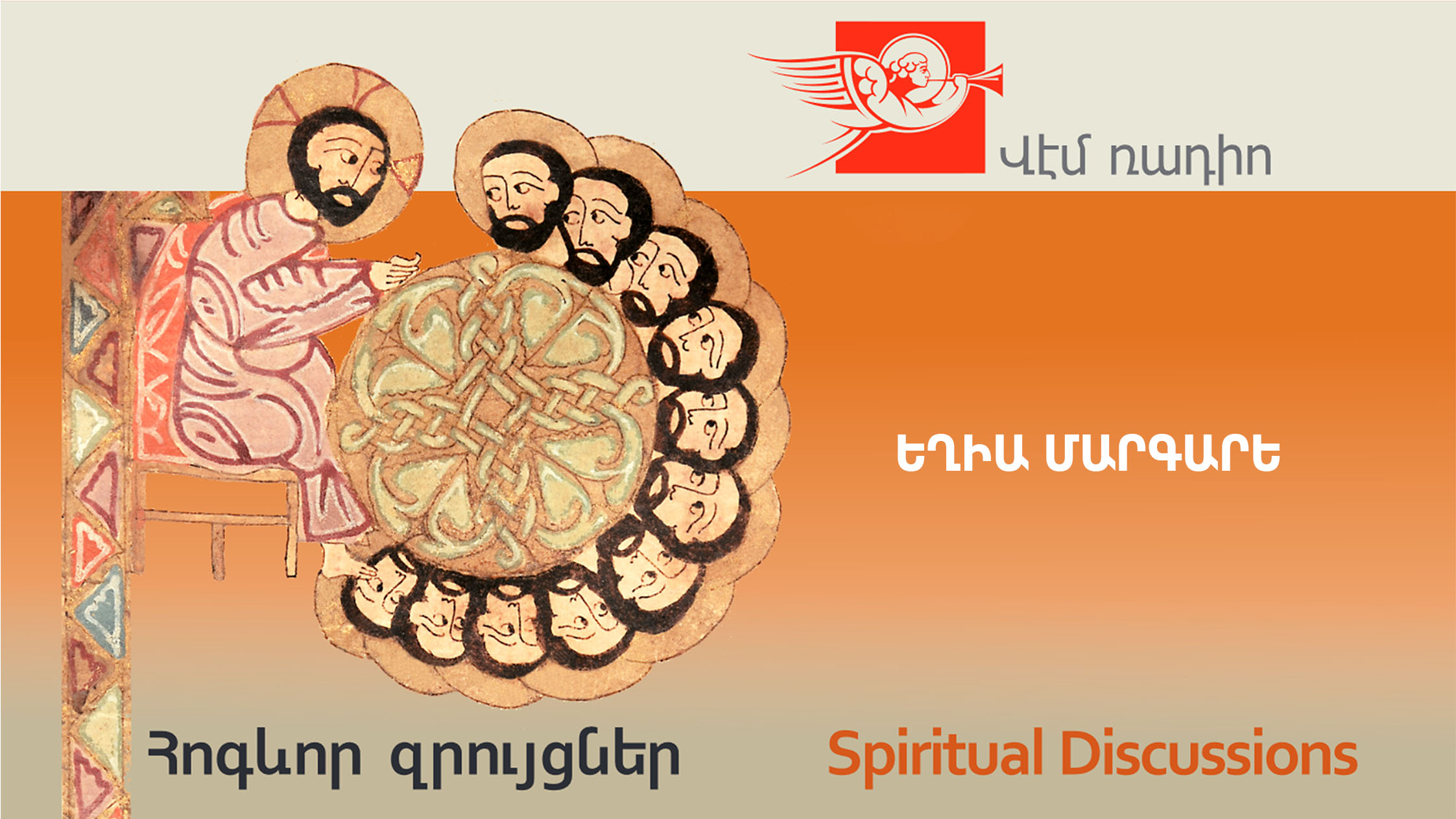
Elijah the Prophet
The Fast of Elijah and the commemoration of Prophet Elijah on the Sunday following Pentecost. The fight of Elijah against widespread idolatry in Israel. Elijah in Jewish and Christian eschatological perceptions. The transfer of Elijah’s prophetic spirit to Elisha and John the Baptist. The ability to hear the Lord’s voice in breeze.
- Speaker: Fr. Davit Gishyan
- Host: Deacon Vardan Aslanyan

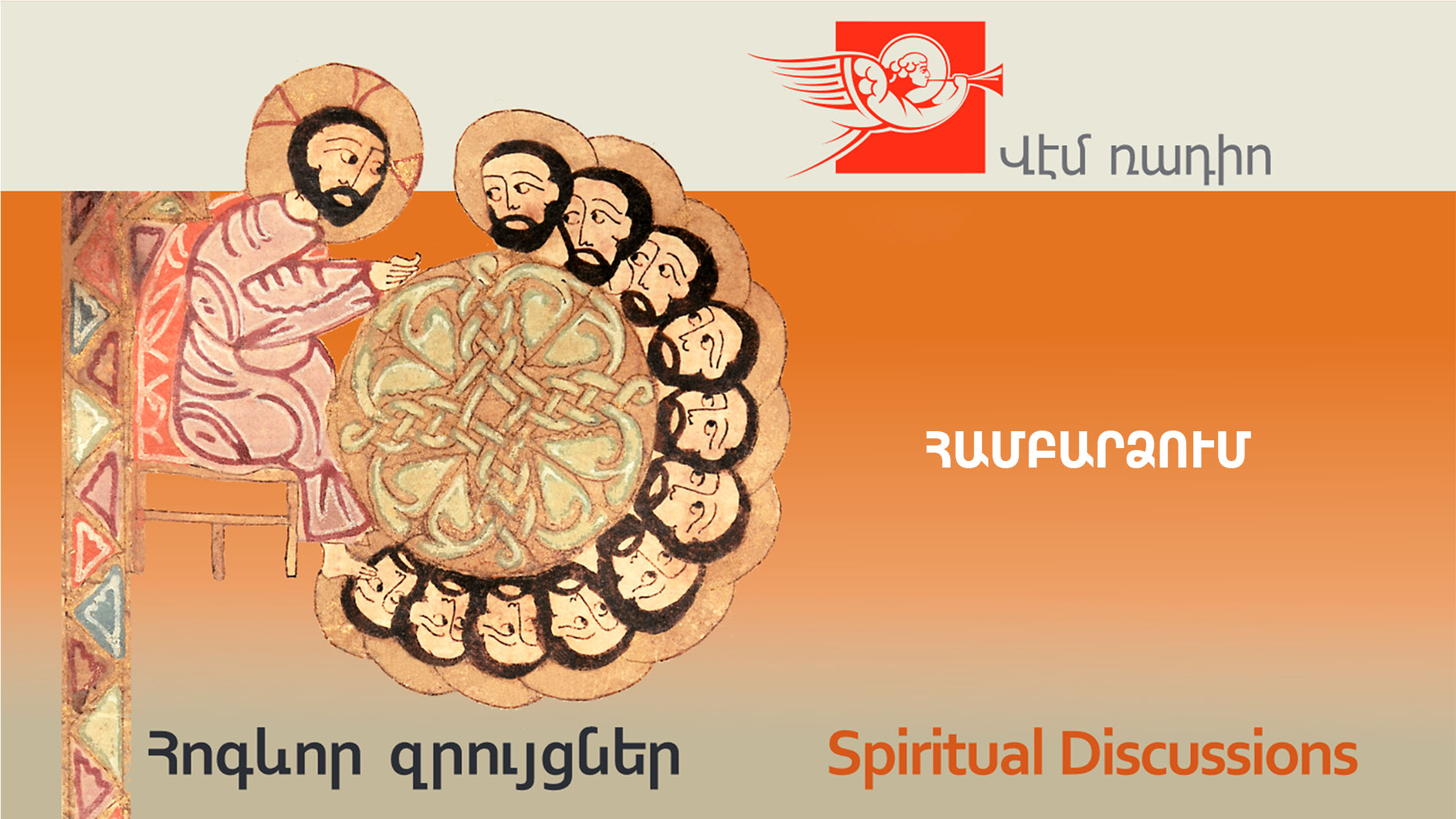
Ascension
Sacralization of the elements of nature by the Lord. Why did Christ ascend in Galilee? The proclamation of the Trinitarian faith: “Baptize them in the name of the Father and of the Son and of the Holy Spirit” (Mt. 28:19). The Lord-established mission of evangelism and its reinforcement by the coming of the Holy Spirit. Preaching in the early Church and the rigors of the apostolic vocation.
- Speaker: Fr. Davit Gishyan
- Host: Deacon Vardan Aslanyan

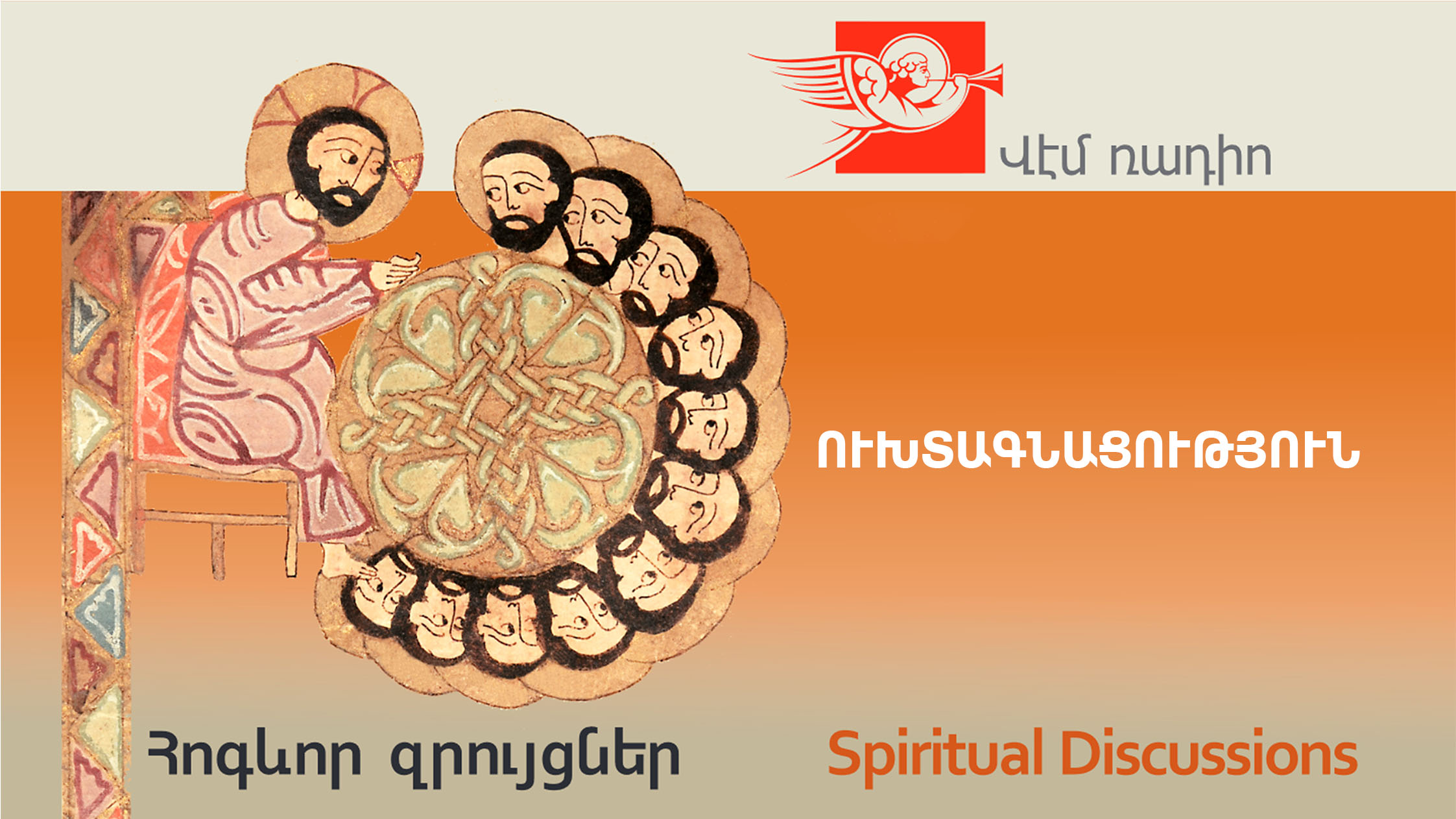
Pilgrimage
The spiritual experience gained from pilgrimages. Difference of pilgrimage from other types of tourism. Choosing pilgrimage sites, companions and the guide when going on to pilgrimage. Getting acquainted with the spiritual centers of the Armenian Church as a factor strengthening national identity. The holy pilgrimage sites of the Armenian and Universal Churches.
- Speakers: Gertsina Petrosyan, Maria Grigoryan, Victoria Margaryan
- Host: Deacon Vardan Aslanyan

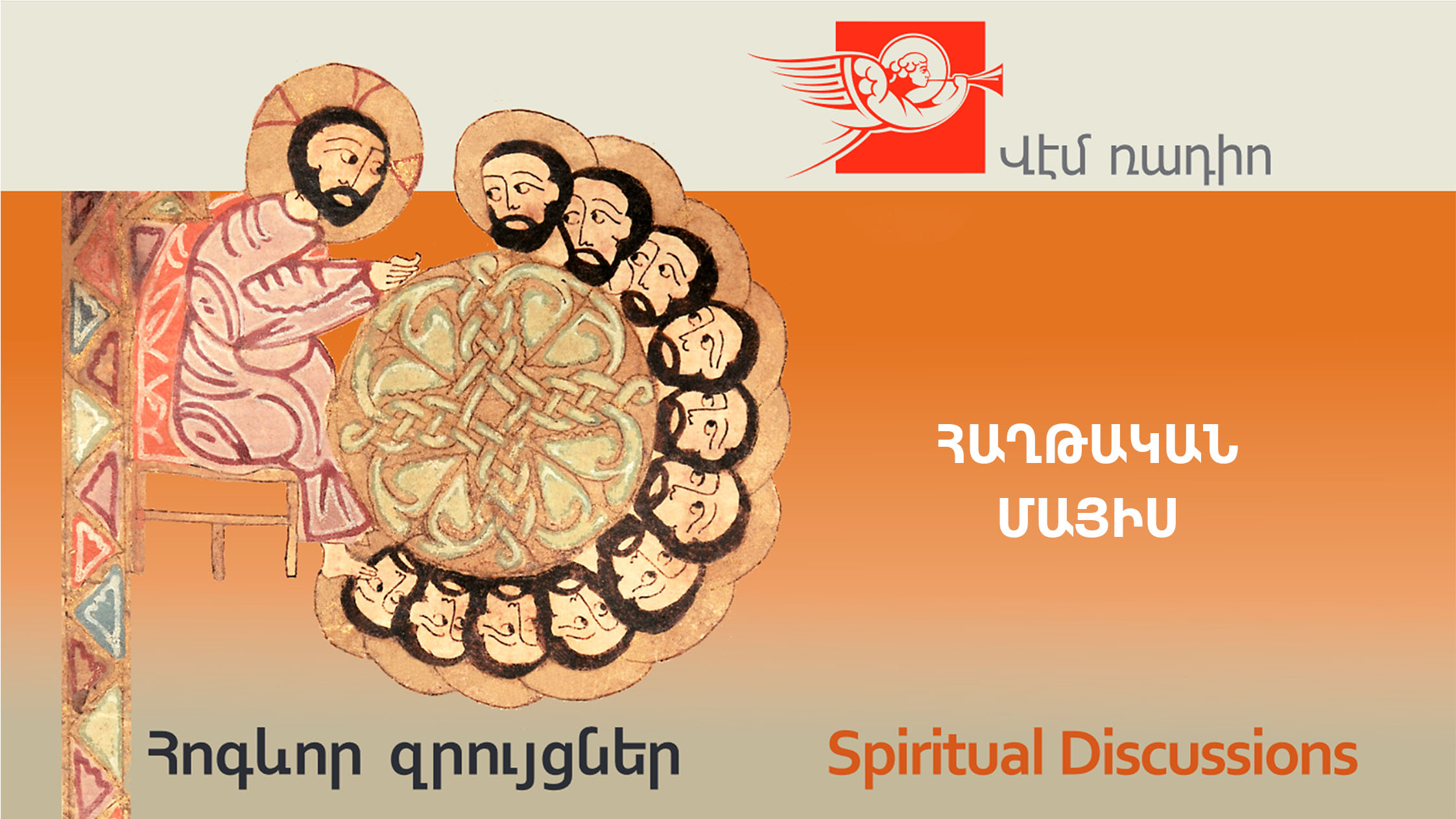
Triumphant May
“If the Lord is for us, who can be against us?” (Rom. 8:31). The victory of the Lord’s resurrection over the world, hell, and death. The tri-holiday of cross-bearing May victories: “You shall win with the help of the cross.” “Thanks be to God, who gives us the victory through our Lord Jesus Christ” (1 Cor. 15:57). The divine grace transforming weakness to victory (2 Cor. 12:9). “I can do all things through him who strengthens me” (Phil. 4:13).
- Speaker: Fr. Husik Dokholyan
- Host: Deacon Vardan Aslanyan

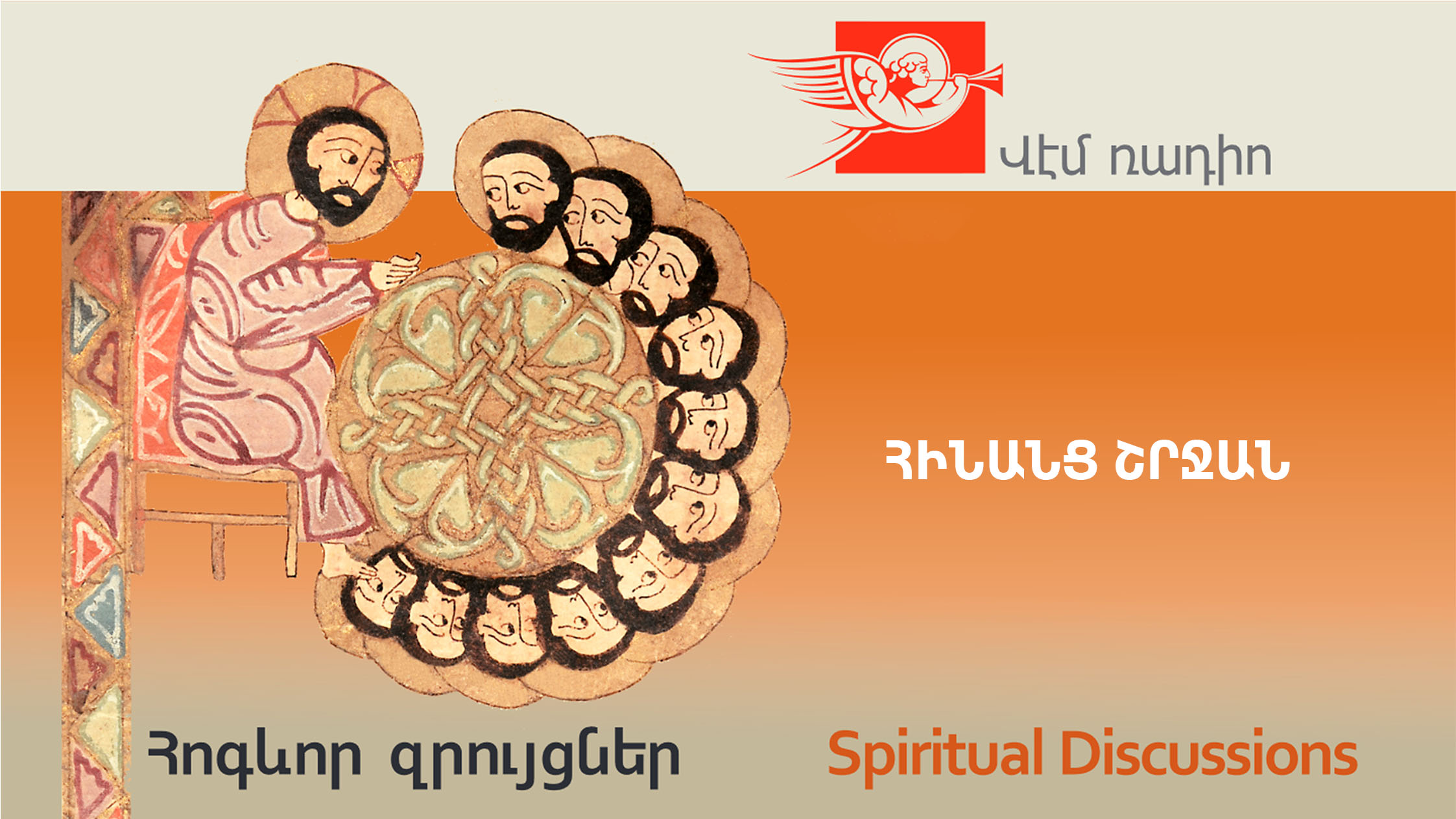
The Pentecosterion (Hinunk)
The continuation of the Christian path after the Lord’s resurrection. The colorful chain of the seven post-Easter Sundays. The joy brought by the Heavenly Bridegroom and the 40-day presence of the resurrected Christ in our lives. The New Testament readings of the Pentecosterion: a season of spiritual learning. “Be renewed in the spirit of your minds, and clothe yourselves with the new self” (Eph. 4:23-24).
- Speaker: Fr. Husik Dokholyan
- Host: Deacon Vardan Aslanyan

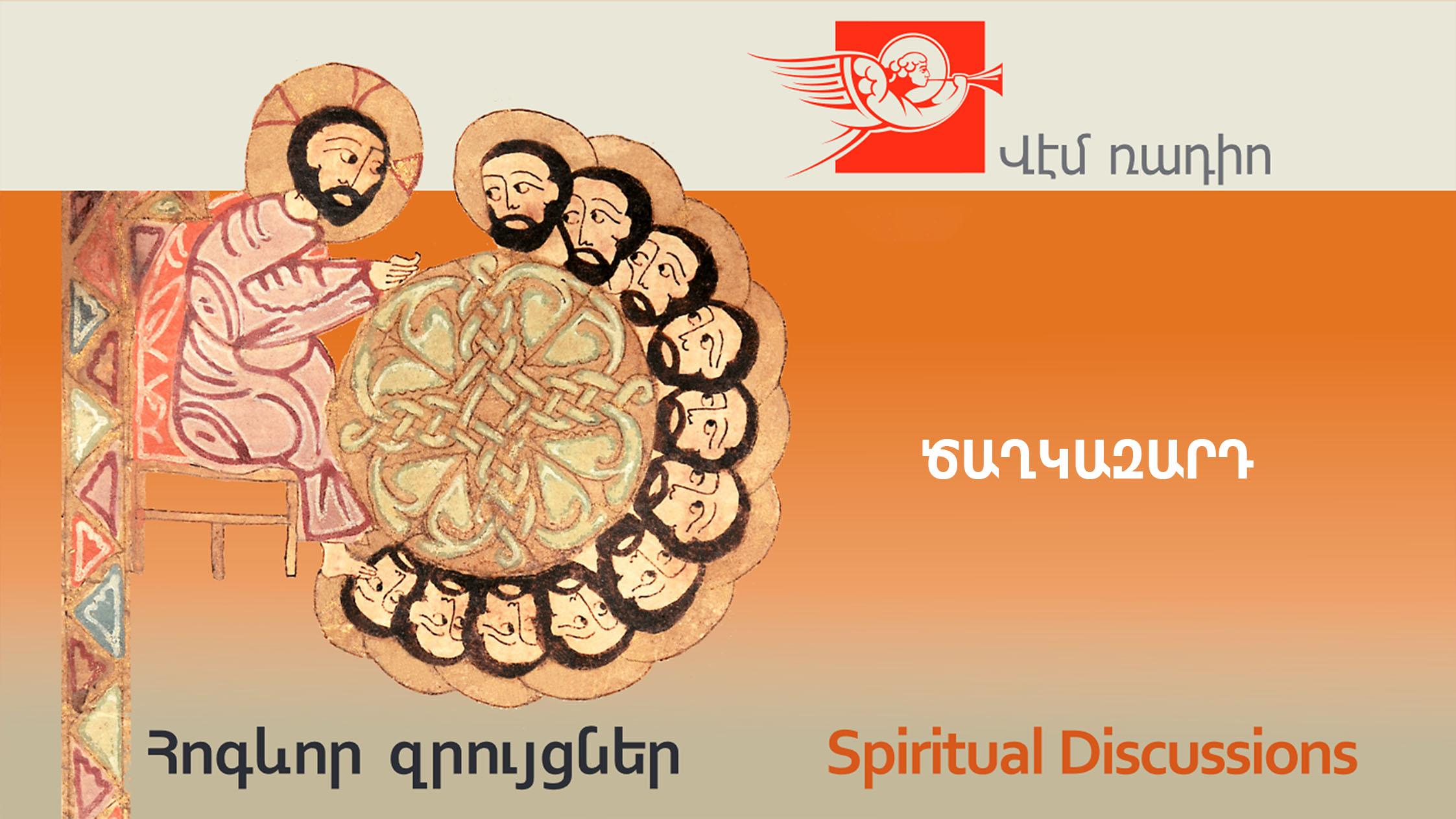
Palm Sunday
Palm Sunday as a connecting link between the forty-day Lent and the Great (Pascha) Week. Christ’s triumphal entry into Jerusalem. “Take courage; I have conquered the world” (John 16:33). How do we come to meet the Lord and are we ready to receive Him into our souls? The Door Opening Ceremony and the symbolic return to the Paradise. The full joy of Palm Sunday before the troubling experiences of the Great Week. The colorful festivities of Palm Sunday and the youth’s participation in them.
- Speakers: Maria Grigoryan, Elen Tsaturyan, Victoria Margaryan
- Host: Deacon Vardan Aslanyan